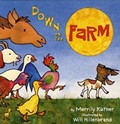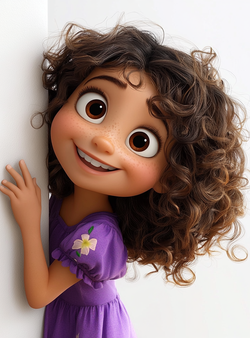Nurturing Young Minds: A Parent's Guide to Reading with 4-Year-Olds









Introduction
Welcome, parents. You already know that your 4-year-old is curious. This gives you an exciting opportunity, as your child's first and most important teacher, to introduce new concepts through stories. At this magical age, your little one is eager to absorb knowledge, and books are the perfect tools to fuel their growing mind. This guide will provide an introduction to the colorful world of children's literature. It presents suggested titles to maximize learning and more importantly, to make reading a joyful experience for you both.
Reading is not only about learning letters and words, but also about leading the way to new worlds and sparking imagination. This activity creates lasting bonds between you and your child. As you proceed through these pages, you are not only telling stories – you are creating the foundation for a lifelong love of learning. As you review the following benefits of reading, incorporate the book recommendations for 4-year-olds to inspire creativity, learning and delight. Make every reading session an adventure!
Benefits of Reading Books
Reading to your 4-year-old offers a treasure trove of benefits that extend far beyond the pages of a book. Let's explore some of the key advantages:
-
Development: Books like "The Day the Crayons Quit" by Drew Daywalt introduce new vocabulary and sentence structures in a fun, engaging way. As your child hears these words in context, their language skills naturally expand.
-
Cognitive Growth: Stories such as "The Legend of Rock Paper Scissors" challenge young minds to think creatively and solve problems. This cognitive stimulation is crucial for brain development at this age.
-
Emotional Intelligence: Books like "Madame Badobedah" by Sophie Dahl help children recognize and express emotions, introducing empathy and self-awareness.
-
Cultural Awareness: Stories such as "Thunder Boy Jr." by Sherman Alexie introduce children to diverse cultures and traditions,expanding their worldview from an early age.
-
Imagination and Creativity: Imaginative tales like "The Truth About Dragons" by Julie Leung spark creativity and encourage children to think outside the box.
-
Bonding Time: Reading together creates special moments of connection. It is a time for cuddling, laughing, and sharing your common and your unique experiences. It strenghtens the parent child bond.
-
Pre-literacy Skills: Even before your child can read independently, 4-year-olds are developing crucial skills through exposure to books, pronunciation and storytelling. They learn about letter and word recognition and experience the joy of storytelling.
-
Attention Span and Focus: Regular reading sessions help improve concentration and listening skills all the while discerning vocal patterns. These vital skills are valuable tools for future success.
-
Self-expression: Books like "Hands Up!" by Breanna J. McDaniel encourage children to express themselves and their experiences, boosting self-confidence and communication with others.
-
Love for Learning: When you make reading enjoyable, you are teaching a lifelong love for learning that will benefit your child throughout their lifetime.
Choose the Right Books
Selecting the perfect book for your 4-year-old is an art and a science. Here are some key concepts to consider:
-
Engaging Illustrations: At this age, visuals are crucial. Look for books with colorful, detailed illustrations that capture your child's attention. "Big" by Vashti Harrison is an excellent example of how captivating artwork enhances a story.
-
Interactive Elements: Books that encourage participation, like lift-the-flap features or posing questions for the reader, keep young children engaged. "I Want My Hat Back" by Jon Klassen invites children to search for clues within the illustrations.
-
Rhyme and Repetition: These elements make books fun to read aloud and help with language development. "There Was a Party for Langston" by Jason Reynolds uses rhythmic language that appeals to young ears.
-
Relatable Themes: Choose books that remind your child of their experiences or interests. "All Around Us" by Xelena González introduces the concept of circles. The circles then connect abstract ideas to everyday experiences.
-
Diverse Characters and Stories: Share books with a wide range of cultures and perspectives. "Thunder Boy Jr." has insights into Native American naming traditions.
-
Appropriate Length: For 4-year-olds, books should be short enough to keep their attention but long enough to tell a complete story in one sitting. "The Bear and the Piano" by David Litchfield strikes a perfect balance.
-
Humor: Books with silly situations or funny characters often become favorites, being requested again and again. "The Legend of Rock Paper Scissors" is sure to elicit giggles with its playful take on this classic game.
-
Educational Content: Introduce books that discuss concepts like colors, numbers, or emotions. "The Day the Crayons Quit" teaches colors while telling a funny story.
-
Positive Messages: Choose books that focus on valuable life lessons. "In Every Life" by Marla Frazee the author presents cherished moments of everyday life, common to all people.
-
Read-Again Appeal: The best books for this age are those that can be read over and over again without losing their charm. "Madame Badobedah" offers layers of storytelling; new details are discovered with each reading.
Recommended Books
Here are some top picks for 4-year-olds, along with brief descriptions:

Boo to a goose
By Fox, Mem
Description: A child relates a long list of things he would do before he'd say boo to a goose.

Down on the farm
By Kutner, Merrily
Description: Simple rhyming text describes the sounds and activities of animals during a day on the farm.

Please Don't Tell Cooper That Jack is a Rabbit
By Feinberg, Michelle Lander

Cleo and Cornelius: A Tale of Two Cities and Two Kitties
By Elizabeth Nicholson

Guess who swoops =
By Gordon, Sharon
Description: "Provides clues about an owl's physical characteristics, behaviors, and habitats in a guessing game format."--From source other than the Library of Congress

Perfect pigeons
By Battersby, Katherine
Description: One plucky pigeon dares to fly against the flock in this brightly illustrated, laugh-out-loud picture book about embracing the things that make us different.

Do not open
By Turkle, Brinton
Description: After one of the storms she loves so much, Miss Moody finds a mysterious bottle buried in the beach sand and, despite the words "Do Not Open" on it, she does open it.

In the rain with Baby Duck
By Hest, Amy
Description: Although her parents love walking in the rain, Baby Duck does not--until Grandpa shares a secret with her.

The village that vanished
By Grifalconi, Ann
Description: In southeastern Africa, a young Yao girl and her mother find a way for their fellow villagers to escape approaching slave traders.

Looking down
By Jenkins, Steve
Description: A series of views of one landscape is seen from progressively higher vantage points, beginning with a view of the sidewalk as seen by a kneeling child and ending outside our galaxy.
To Maximize Your Child's Learning from Books
-
Make it Interactive: Ask questions about the story and illustrations. For example, when reading "I Want My Hat Back," ask your child to spot the hat in different scenes.
-
Connect to Real Life: Relate book events to your child's experiences. After reading "All Around Us," go on a "circle hunt" in your home or neighborhood.
-
Encourage Predictions: Before turning the page, ask what might happen next. This builds critical thinking skills.
-
Explore Emotions: Use books like "Madame Badobedah" to discuss feelings and empathy. Ask how characters might be feeling and why.
-
Extend the Story: After reading "The Legend of Rock Paper Scissors," create your own silly origin stories for everyday objects.
-
Focus on Favorites: It's okay to read the same book multiple times. Repetition aids learning, and you can focus on different aspects with each reading.
-
Make it Multisensory: Add gestures or sound effects to bring stories to life. "Hands Up!" is perfect for incorporating movements.
-
Create Reading Rituals: Designate a special time and place for reading to make it a cherished part of your routine.
-
Lead by Example: Let your child see you enjoying books too. Share your excitement about reading.
-
Visit the Library: Regular library trips make choosing books an adventure and introduce your child to a world of options.
Why Choose MoBoo for Your Books for 4-Year-Olds
At MoBoo, we understand the importance of early childhood reading and are committed to helping you find the perfect books for your 4-year-old:
-
Curated Selection: Our expert staff carefully selects books that are age-appropriate and engaging, including all the titles mentioned in this guide.
-
Interactive Displays: Our store features interactive book displays where children can explore and choose books that catch their interest.
-
Knowledgeable Staff: Our team is trained to recommend books based on your child's interests and reading level.
-
Diverse Collection: We prioritize books that represent a wide range of cultures, experiences, and perspectives.
-
Quality Assurance: All our books are carefully checked to ensure they meet high standards of content and durability.
Frequently Asked Questions
A: The best books for 4-year-olds typically feature engaging illustrations, simple storylines, and interactive elements. Look for books with rhymes, repetition, and relatable themes. Picture books like "The Day the Crayons Quit" or "Big" are excellent choices.
A: Make reading fun and part of your daily routine. Create a cozy reading nook, let your child choose books, use animated voices, and relate stories to real-life experiences. Books like "The Legend of Rock Paper Scissors" can make reading time lively and enjoyable.
A: While the books listed in this guide are standalone titles, many authors like Drew Daywalt and Jon Klassen have multiple books that appeal to this age group. Look for series with recurring characters or themes that your child enjoys.
A: Try different types of books, including non-fiction or books based on their interests. Interactive books like "I Want My Hat Back" can engage reluctant readers. Also, make reading a fun, pressure-free activity, and consider audiobooks or storytelling as alternatives.
A: Absolutely! Reading develops language skills, increases attention span, and introduces basic concepts like colors and numbers. Books like "All Around Us" and "Hands Up!" help develop critical thinking and social-emotional skills crucial for school readiness.
Remember, every child's reading journey is unique. The key is to make reading a joyful, shared experience that nurtures a lifelong love of books and learning. Happy reading!

